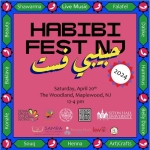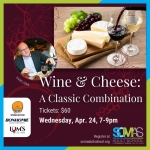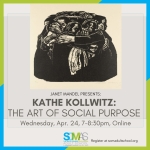SCOTUS Baker Case: MASTERPIECE CAKESHOP, LTD., ET AL. v. COLORADO CIVIL RIGHTS COMMISSION ET AL
I haven't read the opinion (and probably won't), but from multiple interpretations I've read it seems that it's more of an indictment of the Colorado civil rights commission than a clear ruling on the crucial nexus of religion, cake and the First Amendment.
NY Times article cited above ncludes this description and excerpts -
Justice Anthony M. Kennedy, writing for the majority in the 7-2 decision, relied on narrow grounds, saying a state commission had violated the Constitution’s protection of religious freedom in ruling against the baker, Jack Phillips, who had refused to create a custom wedding cake for a gay couple.
“The neutral and respectful consideration to which Phillips was entitled was compromised here,” Justice Kennedy wrote. “The Civil Rights Commission’s treatment of his case has some elements of a clear and impermissible hostility toward the sincere religious beliefs that motivated his objection.”
The Supreme Court’s decision, which turned on the commission’s asserted hostility to religion, strongly reaffirmed protections for gay rights and left open the possibility that other cases raising similar issues could be decided differently.
“The outcome of cases like this in other circumstances must await further elaboration in the courts,” Justice Kennedy wrote, “all in the context of recognizing that these disputes must be resolved with tolerance, without undue disrespect to sincere religious beliefs, and without subjecting gay persons to indignities when they seek goods and services in an open market.”…
Though the case was mostly litigated on free speech grounds, Justice Kennedy’s opinion barely discussed the issue. Instead, he focused on what he said were flaws in the proceedings before the Colorado Civil Rights Commission. Members of the commission, he wrote, had acted with “clear and impermissible hostility” to sincerely held religious beliefs.
One commissioner in particular, Justice Kennedy wrote, had crossed the line in saying that “freedom of religion and religion has been used to justify all kinds of discrimination throughout history, whether it be slavery, whether it be the Holocaust.”
Justice Kennedy wrote that “this sentiment is inappropriate for a commission charged with the solemn responsibility of fair and neutral enforcement of Colorado’s anti-discrimination law.”
dave23 said:
I haven't read the opinion (and probably won't), but from multiple interpretations I've read it seems that it's more of an indictment of the Colorado civil rights commission than a clear ruling on the crucial nexus of religion, cake and the First Amendment.
That was my understanding too. Another gay couple could well request a wedding cake be made for them by the same bakery and they couldn’t refuse on grounds of freedom of religion. The loose definition of dismissed without prejudice.
dave23 said:
I haven't read the opinion (and probably won't), but from multiple interpretations I've read it seems that it's more of an indictment of the Colorado civil rights commission than a clear ruling on the crucial nexus of religion, cake and the First Amendment.
I was watching an ACLU lawyer who was treating the decision as sort of a win, since it didn't rule directly on the religious question.
I saw a good meme on facebook. It said LGBTQ folks should make a new tradition for weddings without cakes. Have all other kinds of desserts. This way, when anyone asks why they don't have cakes, we will remember this decision, and it will be ingrained in history.
But I am beginning to understand that the decision is more nuanced than it seems, and it leaves open the bigger question.
So are they saying the baker didn’t get a fair trial at a lower court because one commissioner made prejudiced remarks?
If that’s the case I hope a new gay couple walks in there today and starts this thing all over before all the knuckleheads around the country start using this as license to discriminate.
I feel the same way, @Red_Barchetta, but how many gay couples want a cake there? How many bakers want to discriminate in this way?
I think this point can be made about a lot of threads. People discuss the application of a general principle to specific facts and arrive at their opinions based on the specific facts and not the general principle. It's called being "result oriented." To put it in more concrete terms, I think this baker is a dope but would you want the Able Baker to be forced to make a cake for some white supremacist Christian Identity group?
Bakers need business. Gay couples will not lack for cakes. And what gay couple would want to force the issue for something like this? The guy might spit in the batter.
I'm for war where it counts - employment, housing, healthcare. The big quality of life things. Not cakes.
How about instead of baking a cake, a small business, on the basis of their religious beliefs, did not want to cut black people's hair, as occurred in the 50s? Or did not want to bake a cake for Jews for the same religious scruples? I agree that the decision is narrow, to kick the can down the road without making a major decision; but the principle of undercutting non-discrimination laws on the basis of religious beliefs is a bit more in play than previously, and difficult to defend as a workable principle. In any of the cases cited, if I were the person denied service, the last person I'd want services from would be the hostile business owner, but overall anti-discrimination laws for businesses have been mostly successful for all concerned.
Jasmo said:
How about instead of baking a cake, a small business, on the basis of their religious beliefs, did not want to cut black people's hair, as occurred in the 50s? Or did not want to bake a cake for Jews for the same religious scruples? I agree that the decision is narrow, to kick the can down the road without making a major decision; but the principle of undercutting non-discrimination laws on the basis of religious beliefs is a bit more in play than previously, and difficult to defend as a workable principle. In any of the cases cited, if I were the person denied service, the last person I'd want services from would be the hostile business owner, but overall anti-discrimination laws for businesses have been mostly successful for all concerned.
Our anti-discrimination laws have there origins in the treatment of black people who were, effectively, a pariah class in our country till not all that long ago. They were frozen out of society. Gays could be invisible but to the extent they came out, they were in the same boat. But things have changed though not, obviously, 100%. I just looking at historic Gallup poll data about how dramatically American attitudes have changed about gays over the decades.
BTW, anti-discrimination laws do not cover every nook and cranny of life. You may not know this but there are country clubs around here that still keep Jews and/or blacks out. Do I like it? No. Do I want to join a club that doesn't want me? No. And I don't need to either, even if I wanted to play golf and feel like I was part of the high class, which I don't. There are other snooty clubs that will have me.
Also, it would be fair to answer my question. Do you want to force the odd shmuck to make a gay wedding cake if it means that bakers also have to make cakes for odious hate-filled "religions." I think the price is too high. Let him eat (his own) cake.
bub said:
Jasmo said:
How about instead of baking a cake, a small business, on the basis of their religious beliefs, did not want to cut black people's hair, as occurred in the 50s? Or did not want to bake a cake for Jews for the same religious scruples? I agree that the decision is narrow, to kick the can down the road without making a major decision; but the principle of undercutting non-discrimination laws on the basis of religious beliefs is a bit more in play than previously, and difficult to defend as a workable principle. In any of the cases cited, if I were the person denied service, the last person I'd want services from would be the hostile business owner, but overall anti-discrimination laws for businesses have been mostly successful for all concerned.
Also, it would be fair to answer my question. Do you want to force the odd shmuck to make a gay wedding cake if it means that bakers also have to make cakes for odious hate-filled "religions." I think the price is too high. Let him eat (his own) cake.
The price depends on who/whom is willing to pay it. The couple decided standing up for their constitutional rights was worth this battle and so be it. It's not for any one of us to tell them what we think its worth. And it is not about a cake.
Two small points. This has zero to do with the Constitution. The Constitution does not require a private citizen to bake a cake for another or to do anything for that matter. Second, I'm not telling the couple to do or not do anything. I'm expressing my concern about how this law will be applied in different situations that we feel very differently about. That's the "price" I'm talking about. Do we want to be forced to do business with haters (who may hate us).
bub said:
I think this point can be made about a lot of threads. People discuss the application of a general principle to specific facts and arrive at their opinions based on the specific facts and not the general principle. It's called being "result oriented." To put it in more concrete terms, I think this baker is a dope but would you want the Able Baker to be forced to make a cake for some white supremacist Christian Identity group?
Bakers need business. Gay couples will not lack for cakes. And what gay couple would want to force the issue for something like this? The guy might spit in the batter.
I'm for war where it counts - employment, housing, healthcare. The big quality of life things. Not cakes.
Those are all valid points. I don’t want to get too far into the weeds, but yes, I do think a baker should have to sell a routine- out of the case unadorned cake to white supremicists. As I understand it this couple did not ask for any gay- themed writing or 2-groom topper- that would have been perceived as forcing the baker into speech he did not agree with.
Secondly I thought that there was a division between self and business. The bakery is a separate entity from the baker. It cannot vote, be drafted, etc. This division protects the baker financially in the event the bakery fails. I didnt think that a business selling a product to a customer of any sort could be implied endorsement of that customers lifestyle by the owner.
bub said:
Two small points. This has zero to do with the Constitution. The Constitution does not require a private citizen to bake a cake for another or to do anything for that matter. Second, I'm not telling the couple to do or not do anything. I'm expressing my concern about how this law will be applied in different situations that we feel very differently about. That's the "price" I'm talking about. Do we want to be forced to do business with haters (who may hate us).
Another way of putting it: If you’re a gay, Jewish hairdresser, do you think you should be able to refuse to cut a swastika into a Neo-Nazi’s buzzcut?
ridski said:
bub said:Another way of putting it: If you’re a gay, Jewish hairdresser, do you think you should be able to refuse to cut a swastika into a Neo-Nazi’s buzzcut?
Two small points. This has zero to do with the Constitution. The Constitution does not require a private citizen to bake a cake for another or to do anything for that matter. Second, I'm not telling the couple to do or not do anything. I'm expressing my concern about how this law will be applied in different situations that we feel very differently about. That's the "price" I'm talking about. Do we want to be forced to do business with haters (who may hate us).
I do.
I was having this discussion about the case with a good friend yesterday. A Jewish, liberal minded guy who is a photographer. I'm a lawyer. This kind of law gets weirder when you apply it to the kinds of services we both provide. Should my friend have to photograph a white supremacist wedding? Should I have to represent a white supremacist organization in a case that might go on for years? It's creepy.
Sure, you can decline their services for reasons that are not of a protected class. In landlording 101 I learned I couldn’t refuse to rent to a family who I thought had too many family members for the size of the apartment they wanted, but if they were smokers, bingo  .
.
ElizMcCord said:
Sure, you can decline their services for reasons that are not of a protected class. In landlording 101 I learned I couldn’t refuse to rent to a family who I thought had too many family members for the size of the apartment they wanted, but if they were smokers, bingo.
True, Eliz, but religions, even ones we find creepy and repugnant, are a protected class.
nohero said:
NY Times article cited above ncludes this description and excerpts -
Justice Anthony M. Kennedy, writing for the majority in the 7-2 decision, relied on narrow grounds, saying a state commission had violated the Constitution’s protection of religious freedom in ruling against the baker, Jack Phillips, who had refused to create a custom wedding cake for a gay couple.
“The neutral and respectful consideration to which Phillips was entitled was compromised here,” Justice Kennedy wrote. “The Civil Rights Commission’s treatment of his case has some elements of a clear and impermissible hostility toward the sincere religious beliefs that motivated his objection.”
I actually think this is a good point, but I also think Slate's Mark Joseph Stern makes a good observation on this:
[Kennedy] stretches free-exercise law, for instance, to find a violation here in a way that he almost certainly will not in the travel-ban case—indicating what appears to be a special solicitude for anti-gay Christians.
I find often blatant pro-conservative-Christian, anti-everyone-else bias of the typical "religious freedom" activists pretty galling.
The ruling is more nuanced than what is being stated here. The main point made my the justice is that it was a custom cake and any business can deny making a custom product whether it is offensive or not. If I went into the able baker and said make me a pie with a lard crust, they can legally say no, we don't make pies with lard crusts. If the baker in CO. has a book with a set of cakes and the couple chose a wedding cake from that book with no modifications, the baker would not be able to deny that product. This was the route that the baker took in his argument. It was not a freedom of religion issue, it was that as an artist someone can not force me to make something I do not want to make.
So, as a photographer, you may have to take a standard set of photos for a person that you find offensive, but they can not make you take nude photos of them. As a lawyer, who writes wills, they can ask you to write them a will, but can not force you to do a service you do not offer to others. As a face painter you would have to paint a item chosen from the book but not a swastika.
Get it?
maps said:
The ruling is more nuanced than what is being stated here. The main point made my the justice is that it was a custom cake and any business can deny making a custom product whether it is offensive or not. If I went into the able baker and said make me a pie with a lard crust, they can legally say no, we don't make pies with lard crusts. If the baker in CO. has a book with a set of cakes and the couple chose a wedding cake from that book with no modifications, the baker would not be able to deny that product. This was the route that the baker took in his argument.
Where did you see either the Supreme Court or Jack Phillips take this route? Since all of Masterpiece Cakeshop’s cakes are custom, it seems a difficult argument to make.
DaveSchmidt said:
maps said:Where did you see either the Supreme Court or Jack Phillips take this route? Since all of Masterpiece Cakeshop’s cakes are custom, it seems a difficult argument to make.
The ruling is more nuanced than what is being stated here. The main point made my the justice is that it was a custom cake and any business can deny making a custom product whether it is offensive or not. If I went into the able baker and said make me a pie with a lard crust, they can legally say no, we don't make pies with lard crusts. If the baker in CO. has a book with a set of cakes and the couple chose a wedding cake from that book with no modifications, the baker would not be able to deny that product. This was the route that the baker took in his argument.
It's all over the place, his stance has always been that he is an artist. He has stated that he would sell a gay couple anything out of his shop, but that his wedding cakes are commissioned pieces of art. It is one of the reasons why the Supreme Court took the case. Again, just because a place makes custom cakes does not mean they have to make a wedding cake with blue frosting.
Here is one link, but there are many. https://www.nytimes.com/2017/09/16/us/supreme-court-baker-same-sex-marriage.html
DaveSchmidt said:
it seems a difficult argument to make.
With a 7 - 2 ruling it seems like they made a pretty solid argument.
maps said:
DaveSchmidt said:With a 7 - 2 ruling it seems like they made a pretty solid argument.
it seems a difficult argument to make.
Aside from the question of whether the argument you described was made before the court, the majority ruling did not exactly follow the arguments anyway. So when you ask “Get it?” I’m afraid I have to answer “No.”
This is a nice graphic explaining how folks voted. You are correct that the majority opinion was around the hostile stance that the state courts took (the state totally pooched this one), but the dissenting opinion and concurring opinions were all centered around the idea of an "offensive" message, not a religious one. AKA, an artist can refuse a commission based on something they find offensive.
For Sale
Garage Sales
-
Multi Family Garage Sale Sale Date: Apr 20, 2024
More info






































Masterpiece Cake decision was rendered today. It appears to be a narrow ruling. SCOTUS analyzed the facts as an instance of compelled speech coupled with the Colorado Commission's impermissible hostility to religion. I have posted the sylbbus for this case and also a link to the full opinion (and the sylabus). It appears to be a very narrow opinion which Kagan and Breyer apparently joined (have not had a chance to read the opinion in detail yet).
The NYT article released earlier today regarding the SCOTUS opinion on the baker case fails to mention the word "compelled" when analyzing this opinion. However, the same NYT article does mention the hostility to religion. See https://www.nytimes.com/2018/06/04/us/politics/supreme-court-sides-with-baker-who-turned-away-gay-couple.html?WT.nav=top-news&action=click&clickSource=story-heading&hp&module=first-column-region&pgtype=Homepage®ion=top-news
================================================
Link to full opinion (and sylabus): https://www.supremecourt.gov/opinions/17pdf/16-111_j4el.pdf
(Slip Opinion) OCTOBER TERM, 2017 1
Syllabus
NOTE: Where it is feasible, a syllabus (headnote) will be released, as is
being done in connection with this case, at the time the opinion is issued.
The syllabus constitutes no part of the opinion of the Court but has been
prepared by the Reporter of Decisions for the convenience of the reader.
See United States v. Detroit Timber & Lumber Co., 200 U. S. 321, 337.
SUPREME COURT OF THE UNITED STATES
Syllabus
MASTERPIECE CAKESHOP, LTD., ET AL. v.
COLORADO CIVIL RIGHTS COMMISSION ET AL.
CERTIORARI TO THE COURT OF APPEALS OF COLORADO
No. 16–111. Argued December 5, 2017—Decided June 4, 2018
Masterpiece Cakeshop, Ltd., is a Colorado bakery owned and operated
by Jack Phillips, an expert baker and devout Christian. In 2012 he
told a same-sex couple that he would not create a cake for their wedding
celebration because of his religious opposition to same-sex marriages—marriages
that Colorado did not then recognize—but that he
would sell them other baked goods, e.g., birthday cakes. The couple
filed a charge with the Colorado Civil Rights Commission (Commission)
pursuant to the Colorado Anti-Discrimination Act (CADA),
which prohibits, as relevant here, discrimination based on sexual orientation
in a “place of business engaged in any sales to the public and
any place offering services . . . to the public.” Under CADA’s administrative
review system, the Colorado Civil Rights Division first found
probable cause for a violation and referred the case to the Commission.
The Commission then referred the case for a formal hearing before
a state Administrative Law Judge (ALJ), who ruled in the couple’s
favor. In so doing, the ALJ rejected Phillips’ First Amendment
claims: that requiring him to create a cake for a same-sex wedding
would violate his right to free speech by compelling him to exercise
his artistic talents to express a message with which he disagreed and
would violate his right to the free exercise of religion. Both the
Commission and the Colorado Court of Appeals affirmed.
Held: The Commission’s actions in this case violated the Free Exercise
Clause. Pp. 9–18.
(a) The laws and the Constitution can, and in some instances must,
protect gay persons and gay couples in the exercise of their civil
rights, but religious and philosophical objections to gay marriage are
protected views and in some instances protected forms of expression.
See Obergefell v. Hodges, 576 U. S. ___, ___. While it is unexceptional
2 MASTERPIECE CAKESHOP, LTD. v. COLORADO
CIVIL RIGHTS COMM’N
Syllabus
that Colorado law can protect gay persons in acquiring products and
services on the same terms and conditions as are offered to other
members of the public, the law must be applied in a manner that is
neutral toward religion. To Phillips, his claim that using his artistic
skills to make an expressive statement, a wedding endorsement in
his own voice and of his own creation, has a significant First
Amendment speech component and implicates his deep and sincere
religious beliefs. His dilemma was understandable in 2012, which
was before Colorado recognized the validity of gay marriages performed
in the State and before this Court issued United States v.
Windsor, 570 U. S. 744, or Obergefell. Given the State’s position at
the time, there is some force to Phillips’ argument that he was not
unreasonable in deeming his decision lawful. State law at the time
also afforded storekeepers some latitude to decline to create specific
messages they considered offensive. Indeed, while the instant enforcement
proceedings were pending, the State Civil Rights Division
concluded in at least three cases that a baker acted lawfully in declining
to create cakes with decorations that demeaned gay persons or
gay marriages. Phillips too was entitled to a neutral and respectful
consideration of his claims in all the circumstances of the case.
Pp. 9–12.
(b) That consideration was compromised, however, by the Commission’s
treatment of Phillips’ case, which showed elements of a clear
and impermissible hostility toward the sincere religious beliefs motivating
his objection. As the record shows, some of the commissioners
at the Commission’s formal, public hearings endorsed the view that
religious beliefs cannot legitimately be carried into the public sphere
or commercial domain, disparaged Phillips’ faith as despicable and
characterized it as merely rhetorical, and compared his invocation of
his sincerely held religious beliefs to defenses of slavery and the Holocaust.
No commissioners objected to the comments. Nor were they
mentioned in the later state-court ruling or disavowed in the briefs
filed here. The comments thus cast doubt on the fairness and impartiality
of the Commission’s adjudication of Phillips’ case.
Another indication of hostility is the different treatment of Phillips’
case and the cases of other bakers with objections to anti-gay messages
who prevailed before the Commission. The Commission ruled
against Phillips in part on the theory that any message on the requested
wedding cake would be attributed to the customer, not to the
baker. Yet the Division did not address this point in any of the cases
involving requests for cakes depicting anti-gay marriage symbolism.
The Division also considered that each bakery was willing to sell other
products to the prospective customers, but the Commission found
Phillips’ willingness to do the same irrelevant. The State Court of
Cite as: 584 U. S. ____ (2018) 3
Syllabus
Appeals’ brief discussion of this disparity of treatment does not answer
Phillips’ concern that the State’s practice was to disfavor the religious
basis of his objection. Pp. 12–16.
(c) For these reasons, the Commission’s treatment of Phillips’ case
violated the State’s duty under the First Amendment not to base laws
or regulations on hostility to a religion or religious viewpoint. The
government, consistent with the Constitution’s guarantee of free exercise,
cannot impose regulations that are hostile to the religious beliefs
of affected citizens and cannot act in a manner that passes
judgment upon or presupposes the illegitimacy of religious beliefs
and practices. Church of Lukumi Babalu Aye, Inc. v. Hialeah, 508
U. S. 520. Factors relevant to the assessment of governmental neutrality
include “the historical background of the decision under challenge,
the specific series of events leading to the enactment or official
policy in question, and the legislative or administrative history, including
contemporaneous statements made by members of the decisionmaking
body.” Id., at 540. In view of these factors, the record
here demonstrates that the Commission’s consideration of Phillips’
case was neither tolerant nor respectful of his religious beliefs. The
Commission gave “every appearance,” id., at 545, of adjudicating his
religious objection based on a negative normative “evaluation of the
particular justification” for his objection and the religious grounds for
it, id., at 537, but government has no role in expressing or even suggesting
whether the religious ground for Phillips’ conscience-based
objection is legitimate or illegitimate. The inference here is thus that
Phillips’ religious objection was not considered with the neutrality
required by the Free Exercise Clause. The State’s interest could have
been weighed against Phillips’ sincere religious objections in a way
consistent with the requisite religious neutrality that must be strictly
observed. But the official expressions of hostility to religion in some
of the commissioners’ comments were inconsistent with that requirement,
and the Commission’s disparate consideration of Phillips’
case compared to the cases of the other bakers suggests the same.
Pp. 16–18.
370 P. 3d 272, reversed.
KENNEDY, J., delivered the opinion of the Court, in which ROBERTS,
C. J., and BREYER, ALITO, KAGAN, and GORSUCH, JJ., joined. KAGAN, J.,
filed a concurring opinion, in which BREYER, J., joined. GORSUCH, J.,
filed a concurring opinion, in which ALITO, J., joined. THOMAS, J., filed
an opinion concurring in part and concurring in the judgment, in which
GORSUCH, J., joined. GINSBURG, J., filed a dissenting opinion, in which
SOTOMAYOR, J., joined.